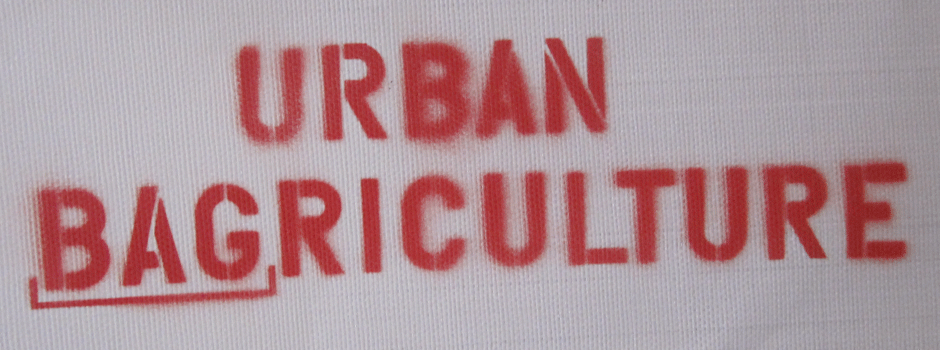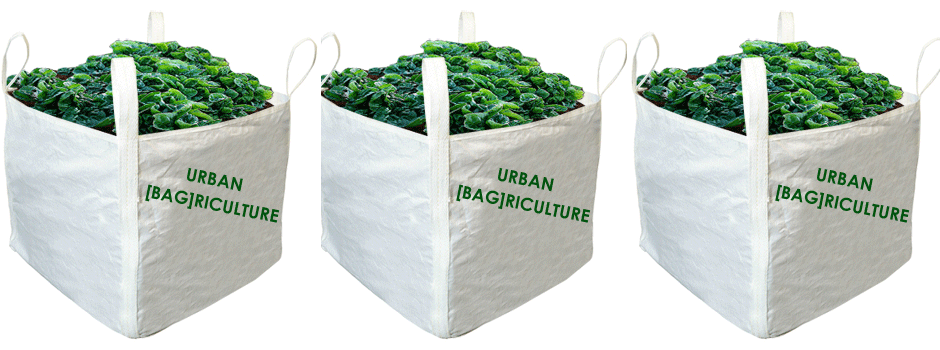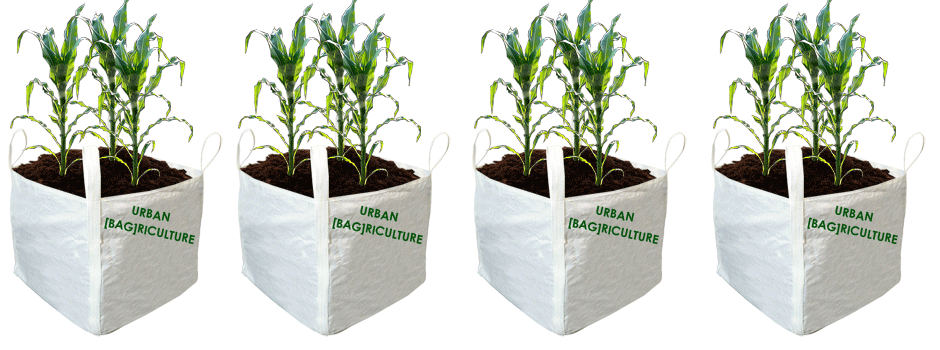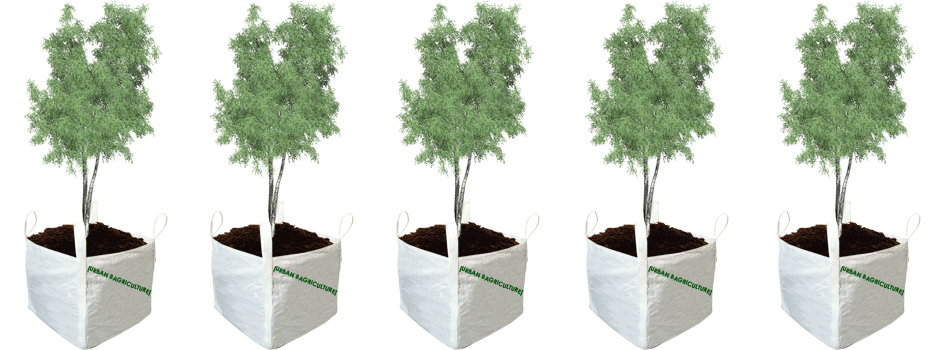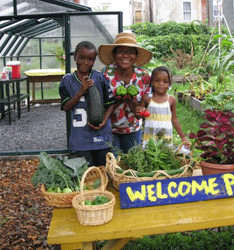Urban [Bag]riculture
The Urban [Bag]riculture project is a collaborative project with Charles Loomis Chariss McAfee Architects to assist local growers with time-sensitive ag projects on contaminated, paved or owner-sensitive urban land.
Heller: Housing units built amid Philadelphia community garden
By Karen Heller, Inquirer Columnist
Mother Earth has come undone.
Vanoka Morris-Smith, known by that moniker among her young charges, is crying. She never cries. A deep crater of red dirt, two lots wide, has rent the award-winning children’s garden at 30th and Berks. “I would rather go through FBI questioning than try to tell my children why their garden is being torn up,” she says.
For nearly a decade, students from Blaine School tended the garden across the street to learn about plants, food production, and seed propagation. “This really is a place of pride. The children are so excited working in the grass,” says Blaine principal Gianeen Powell. Children from the Strawberry Mansion neighborhood flocked to the site after school, during weekends, and in the summer. “I encourage fighting in the garden, but you have to fight the weeds,” Morris-Smith tells them. “You can curse, but you have to curse in botanical terms.”
The children’s community garden occupied a 16-lot area created after crumbling houses were razed under Mayor John F. Street’s Neighborhood Transformation Initiative. Out of decay sprang an Eden.
On Thursday, the Philadelphia Housing Authority began constructing four handicapped-accessible units in the middle of the parcel. The crew kindly moved three mature Bradford pear trees and one honey locust. Workers transported the greenhouse, potting shed, raised garden beds, and picnic tables, now crowding the eastern edge. The garden is featured in Mayor Nutter’s Greenworks campaign, the Pennsylvania Horticultural Society’s publications, and the Brooklyn Botanical Garden’s community garden guide. It has won eight PHS awards, including four first-place prizes for children’s gardens.
Morris-Smith is a master gardener, certified by Penn State. When the shed and garden were vandalized on Easter weekend in 2009, a hundred admirers donated $6,000. “Why couldn’t they have built the homes at the edge of the lot?” Morris-Smith asks. “That way we could have had housing and the garden.” Strawberry Mansion contains so many green spaces it could be called Strawberry Fields. Rare is the block unbroken by vacant land.
Philadelphia’s Fifth Council District, represented by Darrell L. Clarke, encompasses a large swath of former manufacturing sites. It’s home to the city’s greatest number of vacancies, double that of any other district, according to Bob Grossmann, director of the PHS vacant land stabilization program. With the influx of federal recovery and reinvestment money, PHA “just started building anyplace they had a parcel of space,” Grossmann says. “We’re running into this all over the city.”
Which is what happened last year. “PHA erected two homes right on top of an award-winning vegetable garden” on a five-lot site at 11th and Cumberland, says Liz Grimaldi, executive director of the transformative Village of Arts and Humanities community organization. “I would rather they had built five homes rather than two spontaneously.”
Morris-Smith attended PHA’s 2009 hearing on the planned homes. She believes she was the only neighbor present, the only person to complain. That’s due, in part, to there being so few residents on the 3000 block of West Berks, dominated as it is by the garden and the school. And there’s the rub. Philadelphia is rich in vacant land, 40,000 parcels by PHS estimates, some developed into sustainable gardens, many more horrific eyesores. So the city needs more development – as well as actively engaged residents and community organizations.
No one argues against new public housing for the underserved disabled population. It’s just a shame that, with so much vacant land, PHA desired the same plot of land that was home to a vital children’s garden. But the truth is, PHA owned those two lots for three decades. Morris-Smith never owned the space. She merely cared for it well. It was always PHA’s to develop.
“Community gardens are intended to be an interim stabilization treatment to encourage health and safety in the neighborhood,” says the horticultural society’s Grossmann. “We also encourage development in the neighborhood. Everyone who does these gardens takes that risk.”
PHA contends it has been in constant contact with Morris-Smith. “We delayed construction to accommodate her growing season,” says spokeswoman Nichole Tillman. “The community garden can still exist on either side of the building during and after construction. Morris-Smith remains less confident. “I can do vertical gardening,” she says, “but what we need is another piece of land to work with the school.”
I put in a call to Katherine Gajewski, the city’s director of sustainability. “Through our urban garden agreement, I think we can identify other vacant spaces in the area” for cultivation, she says. “The second option is to think of some nearby rec center and partner with it.” Gajewski concedes that what happened to the Berks Street garden, and earlier to the site at 11th and Cumberland, needs to be addressed or it will happen again. “This becomes a problem in the land-management process,” Gajewski says. “How do you support individuals and organizations for multiuse programs? How do we do a better job in the interim and for long-term use of a site?”
Excellent questions. Vanoka Morris-Smith’s community garden seems an excellent starting place to create sustainable, enduring solutions.
——————————————————————————–
Contact columnist Karen Heller at 215-854-2586 or kheller@phillynews.com.
Pennsylvania Horticultural Society 2010 City Gardens Contest
